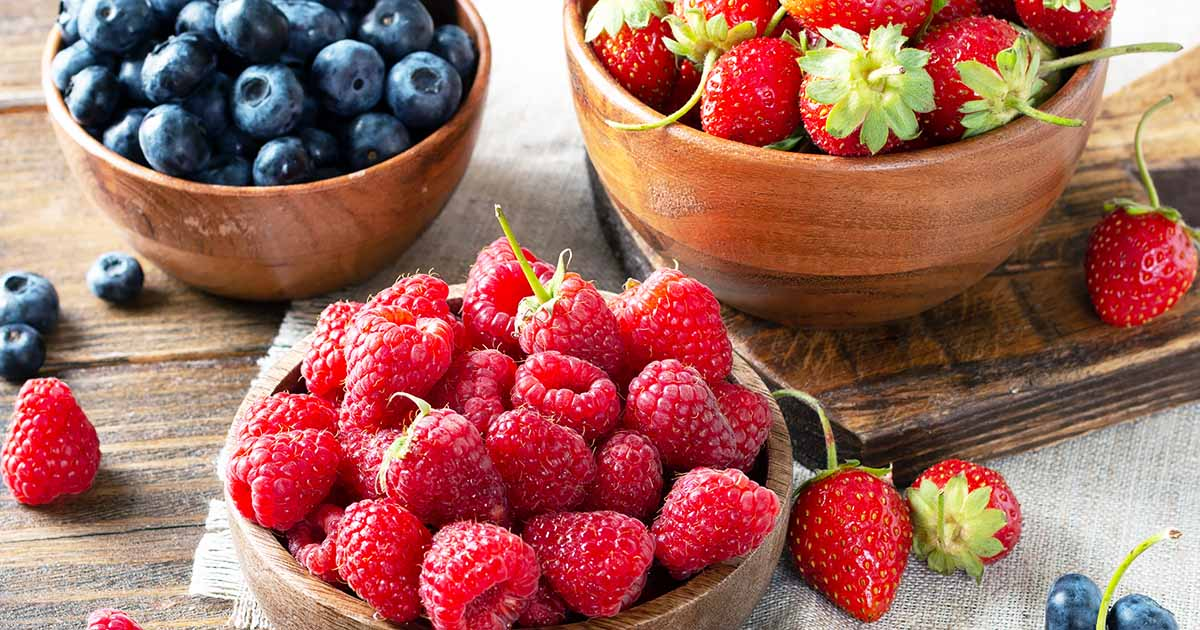Eating fruit is a delicious way to satisfy hunger and meet daily nutritional needs. However, most fruits contain sugar. This has raised questions about whether fruits are suitable for people who have diabetes.
Is fruit dangerous for people with diabetes? This article will suggest fruits to eat and avoid if you have diabetes, as well as examining the relationship between fruit and blood sugar.
Apples
Apples are a popular fruit. They are delicious raw for a snack or dessert. When cooked, apples have a deeper flavor, making them a favorite in cooked desserts when spiced with cinnamon or ginger.
A recipe from the ADA suggests marinating apples in a small amount of honey and spices and then cooking them on a grill. To finish, roll the apples in crushed walnuts or pecans.
While still containing honey, this is a healthier alternative to many apple-based baked goods.
Avocados
Avocados are high in fat, but they contain monounsaturated fat, the type of fat that is beneficial for the body.
They are eaten raw and can be served sliced, in salsas, or as guacamole. Avocados are easy to prepare by slicing them in half around the pit. Discard the pit and mash the avocado.
Add herbs and vegetables to taste. Lime or lemon can also be added to avocado for a citrus boost.
Berries

Berries are tasty when eaten raw and can also be cooked into a compote to spoon into oatmeal or meat.
Put whole fresh or frozen berries into a saucepan with a tablespoon or two of water. Cook on medium or low heat until the berries have broken down into a thick sauce.
One serving is half a cup.
Peaches
Fragrant, juicy peaches are a warm-weather treat and can also be included in your diabetes-friendly diet. One medium peach contains 59 calories and 14 g of carbohydrates, according to the USDA. It also has 10 milligrams (mg) of vitamin C, which covers 11 percent of your daily value (DV) for that nutrient, and 285 mg of potassium (6 percent of the DV). The fruit is delicious on its own or tossed into iced tea for a fruity twist. When you want an easy diabetes-friendly snack, whip up a quick smoothie by pureeing peach slices with low-fat buttermilk, crushed ice, and a touch of cinnamon or ginger.
Oranges
Eat one orange and you'll get 78 percent of the vitamin C you need in a day (there are 70 mg of C in one medium fruit). This refreshing choice comes in at only 15 g of carbohydrates and 62 calories, per the USDA. One medium orange also contains folate (40 mcg or 10 percent of the DV) and potassium (237 mg or 5 percent of the DV), which may help normalize blood pressure. And while you're enjoying this juicy treat, don't forget that other citrus fruits, like grapefruit, are also great choices.
Kiwi
If you've never tried a kiwi, you may not know that its fuzzy brown peel hides a zesty bright green fruit. According to the USDA, one delicious, powerhouse kiwi has 215 mg of potassium (5 percent of the DV), 64 mg of vitamin C (71 percent of the DV) and 2 g of fiber (8 percent of the DV). One kiwi also has about 42 calories and 10 g of carbohydrates, so it's a smart addition to your diabetes-friendly diet. Kiwis are available year-round and will last in the refrigerator for up to seven days, according to Zespri Kiwifruit.
Citrus Fruits

Citrus fruits are versatile and easy to add to meals. Add lemons and limes to seafood, sauces, or glasses of iced tea or water.
People can make their own fruit water by adding citrus slices to a pitcher of water. Let the water sit overnight to create a refreshing drink.




